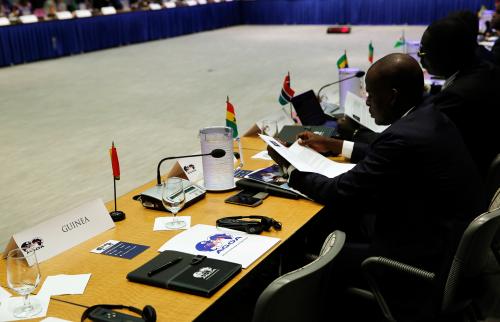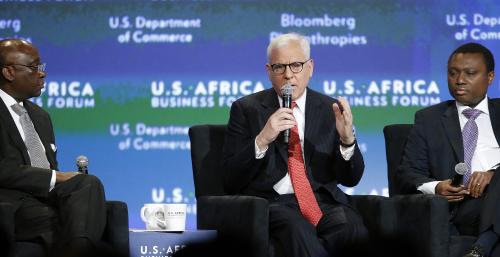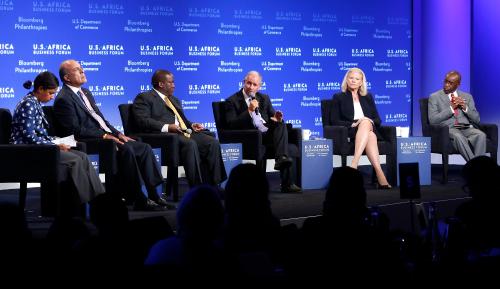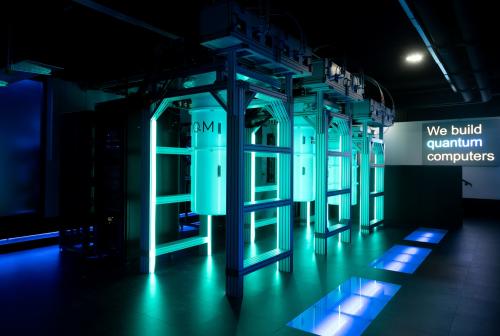The Sentry reports high-level abuses of power by South Sudan leaders and families
On Monday, September 12, The Sentry, a watchdog organization that aims to “alter the incentive structure of those benefiting financially and politically from conflict and mass atrocities” through “[tracking and analyzing] how armed conflict and atrocities are financed, sustained, and monetized,” released a scathing report, “War Crimes Shouldn’t Pay: Stopping the Looting and Destruction of South Sudan,” on the enormous wealth garnered by both leaders of the civil war and their families.
The report asserts that, while the people of South Sudan have suffered the deaths of tens of thousands, the displacement of 2 million, and mass rape, President Salva Kiir and former Vice President Riek Machar, their families, and associated generals have been amassing million-dollar homes around the world, sports cars, and expensive vacations. According to the report, Kiir’s wife and children (starting from a young age) have owned stakes in “almost two dozen companies operating in oil, mining, construction, gambling, banking, foreign exchange, telecommunications, aviation, and government and military procurement.” The report accused top military leaders of similar undertakings. Machar was similarly guilty of shady business ventures: “Machar (before his removal from his position by Kiir) tried to engineer a murky deal that would have traded future oil reserves for weapons from a Russian arms dealer.”
During the press conference and an associated Washington Post op-ed, George Clooney, Enough Project founder John Prendergast, and their associates stressed the need for targeted sanctions on South Sudanese perpetrators—at the moment, Kiir, Machar, and their families are not on sanctions lists—as well as expressed astonishment over the brazenness of these officials. In response to the long list of allegations, South Sudanese Presidential Advisor Tor Deng Mawien called the report “rubbish” and “nonsense.” The Kenyan Commercial Bank, which was accused by The Sentry of money laundering, similarly denied the allegations. At the same time, Machar’s Sudan People’s Liberation Movement spokesman James Gatdet Dak commended the report, stating that it “absolved” the leader and that “the report did not find any evidence of corruption by Machar.”
President Mahama announces second presidential bid as Ghana’s fifth eurobond is greatly oversubscribed
This week, Ghana’s President John Dramani Mahama announced his second-term bid for president. Formerly the vice president, Mahama assumed office in July 2012 after the death of President John Atta Mills. In December of that same year, he won the presidential elections with 50.7 percent of the votes. In June, Mahama’s approval ratings were at 41 percent. Ghana’s economy has faced woes under its leadership (rising inflation, debt and youth unemployment), and in his speech he promised to bring economic transformation. He also assured the Ghanaian public that their country will not seek additional bailouts from the International Monetary Fund, but will not quit its current, but unpopular, austerity program. In April 2015, Ghana entered $1 billion loan-program with the IMF, after lower commodity prices caused great debt increases. In its most recent Regional Economic Outlook, though, the IMF projected that Ghana’s 2017 GDP growth will lie at 7.7 percent, up from 4.5 percent in 2016. Mahama insists that the recent improvement in Ghana’s economy will keep the country away from seeking additional bail-outs.
In the ongoing aim to reimburse its large debt, last week Ghana issued its fifth eurobond for $750 million at a yield of 9.25 percent. Investors showed great interest in Ghana’s debt: The bond was oversubscribed by 500 percent, with orders exceeding $4 billion. The finance minister stated that $400 million would be used to refinance the country’s 10-year bond, which is set to mature in 2017. The remaining funds will be used to finance capital projects. Ghana’s eurobonds have relatively high returns when compared to the dollar debt of fellow sub-Saharan African nations; the bonds have respectively returned 5.9 and 4.3 percent since August.
Visa launches mVisa mobile money platform in Kenya
This week, Visa Inc. introduced a mobile money payment platform called mVisa to Kenya—a country where nearly half of adults already use the dominant M-Pesa mobile money system provided by Safaricom. The mVisa application allows users to send money person to person or person to merchant without requiring the parties to have the same mobile provider or bank. This interoperability may give the platform an edge over M-Pesa, which requires users to go through the Safaricom network. Following the successful rollout of the mVisa application in India last year, Visa intends to penetrate the East African market, starting in Kenya, expanding to Rwanda, Tanzania, and Uganda in the next two months, and then on to Nigeria by the end of 2016. In contrast to M-Pesa, mVisa does not charge customers for converting their mobile money to cash since it can be withdrawn from ATMs. Still, mVisa users have to be linked with one of four Kenyan banks that have partnered with Visa—Co-Operative Bank, Family Bank, KCB, and NIC Bank—in order to send and receive payments. Some observers argue that this could limit the system’s adoption since one of the reasons that M-Pesa became so popular initially in Kenya was because it only required an ID card and a registered cell phone to use the platform.
The Brookings Institution is committed to quality, independence, and impact.
We are supported by a diverse array of funders. In line with our values and policies, each Brookings publication represents the sole views of its author(s).








Commentary
Africa in the news: The Sentry reports power abuses in South Sudan, Ghana’s eurobond is vastly oversubscribed, and Visa launches M-Pesa rival
September 16, 2016